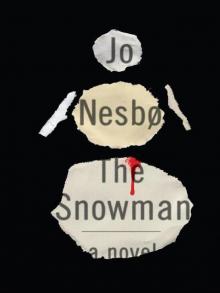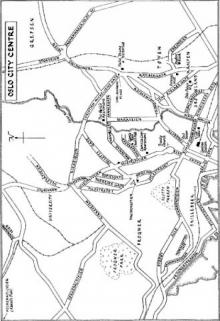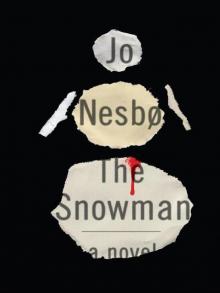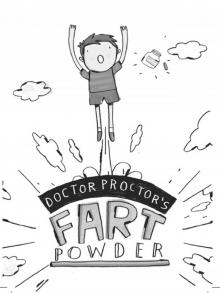The Redeemer hh-6 Read online
Page 18
When Ragnhild thought like that she could surprise herself. Were they so different from her? Maybe the difference was that she had a job. Was that why she couldn't stand their smug faces at the morning restaurant in Vinderen when they complained about all the welfare abuse and tax evasion in what they, with a slight sneer, called 'society'? Or was there another reason? Because something had happened. A revolution. She had begun to care for someone other than herself. She hadn't felt that since Amalie. Or Johannes.
The whole thing had started with a plan. Share values had continued to tumble thanks to Mads's unfortunate investments, and something drastic had to be done. It wasn't just a question of shifting assets to funds with a lower risk; debts had accumulated that had to be covered. In short, they needed to make a financial coup. Her father-in-law had launched the idea. And it really did smack of a coup, or to be more precise, a robbery. Not a robbery of a well-guarded bank but of old ladies. The lady in question was the Salvation Army. Ragnhild had gone through their property portfolio, which was nothing short of impressive. That is, the properties were not in very good condition, but their potential and location were excellent. Above all those in central Oslo, and especially those in Majorstuen. The accounts of the Salvation Army had demonstrated at least two things to her: they needed money and the properties were hugely undervalued. In all probability they were not aware of the assets they were sitting on; she very much doubted the decision-makers in the organisation were the sharpest knives in the drawer. In addition, it was perhaps the perfect time to buy as the property market had fallen at the same time as share prices, and other leading indicators had begun to point upwards again.
One telephone call later she had arranged a meeting.
It was a wonderful spring day as she drove up to the Salvation Army Headquarters.
Commander David Eckhoff received her and within three seconds she had seen through the joviality. Behind it she saw a domineering leader of the herd, the kind she was so talented at manoeuvring and she thought to herself: this could go well. He led her into a meeting room with waffles, sensationally bad coffee and one older and two younger colleagues. The older one was the chief administrator, a lieutenant colonel who was on the point of retiring. The first of the two younger ones was Rikard Nilsen, a timid young man similar at first glance to Mads Gilstrup. But that recognition was nothing compared with the shock she received when greeting the other young man. He shook hands with a tentative smile and introduced himself as Jon Karlsen. It wasn't the tall, stooped figure, nor the open boyish face, nor the warm voice, but the eyes. He looked straight at her. Inside her. The way he had done. They were Johannes's eyes.
For the first part of the meeting, while the chief administrator accounted for the turnover of the Norwegian Salvation Army, amounting to just under a billion kroner, of which a significant contribution was rental income from the 230 plots the Army owned, she sat in a trancelike state trying to stop herself staring at the young man. At his hair, at his hands resting on the table in total serenity. At his shoulders that didn't quite fill the black uniform, a uniform which Ragnhild had, from her childhood, associated with old men and women who, despite not believing in life before death, sang to three-chord songs with a smile. She must have thought – without really thinking – that the Salvation Army was for those who couldn't gain a foothold anywhere else, the simple ones, the lacklustre and the lackwits no one else wanted to play with but who knew that in the Army there was a community where even they could meet the requirements: singing second voice.
When the chief administrator was finished, Ragnhild thanked him, opened the folder she had brought with her and passed a single A4 sheet over the table to the commander.
'This is our offer,' she said. 'It will become clear which properties we're interested in.'
'Thank you,' said the commander, studying the document.
Ragnhild tried to read the expression on his face. But knew it didn't mean much. A pair of reading glasses lay untouched on the table in front of him.
'Our specialist will have to do the calculations and make a recommendation,' the commander said with a smile, and passed the document on. To Jon Karlsen. Ragnhild noticed the twitch in Rikard Nilsen's face.
She pushed a business card across the table to Jon Karlsen.
'If anything is unclear, just give me a ring,' she said, and felt his eyes on her like a physical caress.
'Thank you for talking to us, fru Gilstrup,' Commander Eckhoff said, clapping his hands. 'We promise to give you an answer in the course of… Jon?'
'Not too long.'
The commander gave a jovial smile. 'Not too long.'
All four of them accompanied her to the lift. No one said anything while they waited.
As the lift doors slid open she half leaned towards Jon and said in a low voice: 'Any time at all. Use my mobile number.'
She had tried to catch his eye to feel it again, but had failed. On the way down in the lift, alone, Ragnhild Gilstrup had felt her blood pumping in sudden, painful bursts and she had started to tremble uncontrollably.
Three days passed before he rang to say no. They had assessed the offer and concluded they didn't want to sell. Ragnhild had made an impassioned defence of the price and pointed out that the Salvation Army's position in the property market was vulnerable, the properties were not being run in a professional manner, that they were losing money with the low rents and that the Army should diversify their investments. Jon Karlsen listened without interrupting.
'Thank you,' he said when she was finished, 'for examining the case with such thoroughness, fru Gilstrup. And, as an economist, I don't disagree with what you say. But-'
'But what? The calculations are unambiguous…' She had heard the breathy excitement in her voice.
'But there is a human dimension.'
'Human?'
'The tenants. Human beings. Old people who have lived there all their lives, retired Army soldiers, refugees, human beings who need security. They are my human dimension. You'll throw them out to do up the flats and rent or sell at a profit. The calculations are – as you yourself said – unambiguous. That's your all-consuming economic dimension and I accept it. Do you accept mine?'
She caught her breath.
'I…' she started.
'I would be very happy to take you to meet some of these people,' he said. 'Then you might understand better.'
She sat shaking her head. 'I would like to clear up a few misunderstandings as far as our intentions are concerned,' she said. 'Are you busy Thursday evening?'
'No, but-'
'Let's meet at Feinschmecker at eight.'
'What is Feinschmecker?'
She had to smile. 'A restaurant in Frogner. Let me put it this way: the taxi driver will know where it is.'
'If it's in Frogner, I'll cycle.'
'Fine. See you.'
She called a meeting with Mads and her father-in-law and reported back on the outcome.
'Sounds like the key is this adviser of theirs,' said the father-in-law, Albert Gilstrup. 'If we can get him on our side, the properties are ours.'
'But I'm telling you he's not interested in any price we would pay.'
'Oh yes, he is,' said the father-in-law.
'No, he isn't!'
'Not to the Salvation Army, he isn't. He can wave his moral flag there as much as he likes. We have to appeal to his personal greed.'
Ragnhild shook her head. 'Not to this person's. He… he's not the kind to do that.'
'Everyone has their price,' Albert Gilstrup said with a sad smile, wagging his forefinger from side to side, like a metronome, in front of her face. 'The Salvation Army grew out of pietism, and pietism was the practical person's approach to religion. That's why pietism was such a hit in the unproductive north: bread first, then a prayer. I propose two million.'
'Two million?' Mads Gilstrup gasped. 'For… recommending them to sell?'
'Providing that there's a sale, of course. No cure, no pay.'
&n
bsp; 'That's still an insane sum of money,' the son protested.
The father-in-law answered without a glance: 'The only thing that's insane is that we have managed to decimate a family fortune at a time when everything else has gone up.'
Mads Gilstrup opened his mouth like an aquarium fish, but nothing came out.
'This adviser of theirs won't have the stomach to negotiate the price if he thinks the first offer is too low,' the father-in-law said. 'We have to knock him out with the first punch. Two million. What do you say, Ragnhild?'
Ragnhild nodded slowly, concentrating on something outside the window because she couldn't bring herself to look at her husband, who sat with bowed head in the shadow beyond the reading lamp.
Jon Karlsen was already at the table waiting when she arrived. He seemed smaller than she remembered, but perhaps that was because he had swapped his uniform for a sack of a suit she assumed had been bought in Fretex. Or he looked as though he felt lost in the fashionable restaurant. He knocked over the flower vase as he stood up to greet her. They rescued the flowers in a joint operation and laughed. Afterwards they talked about a variety of things. When he asked her if she had any children, she just shook her head.
Did he have any children? No. Right, but maybe he had…? No, not that either.
The conversation moved over to the properties owned by the Salvation Army, but she noticed he was arguing without the usual spark. He wore a polite smile and sipped his wine. She increased the offer by 10 per cent. He shook his head, still smiling, and complimented her on the necklace she knew contrasted well with her skin.
'A present from my mother,' she lied without effort. Thinking it was her eyes he was admiring. The light blue irises with the clear sclera.
Between main course and dessert she threw in the offer of a personal emolument of two million. She was spared looking into his eyes because he was studying his wine glass, silent, suddenly white-faced.
At length, he asked, in a whisper: 'Was this your idea?'
'Mine and my father-in-law's.' She noticed she was short of breath.
'Albert Gilstrup?'
'Yes. Apart from us two and my husband no one will ever know about this. We would have as much to lose if this came out as… er, as you.'
'Is it something I've said or done?'
'I beg your pardon?'
'What made you and your father-in-law think I would agree to a handful of silver?'
He looked up at her and Ragnhild could feel the blush spreading across her face. She couldn't remember blushing since her adolescence.
'Shall we drop the dessert?' He took the serviette from his lap and put it on the table beside the dinner plate.
'Take your time and think before you answer, Jon,' she stammered. 'For your own good. This can give you the chance to realise some dreams.'
The words grated and jarred even in her ears. Jon signalled to the waiter for the bill. 'And what dreams are they? The dream of being a corrupt servant, a miserable deserter? Driving around in a fine car while everything you're trying to achieve as a person lies in ruins around you?' The fury in his voice was making it quiver. 'Is that the kind of dream you have, Ragnhild Gilstrup?'
She was unable to answer.
'I must be blind,' he said. 'Because do you know what? When I met you I thought I saw… an altogether different person.'
'You saw me,' she whispered, sensing the onset of trembling, the same as she had experienced in the lift.
'What?'
She cleared her voice. 'You saw me. And now I've offended you. I am so sorry.'
In the ensuing silence she felt herself sinking through hot and cold layers of water.
'Let's put all this behind us,' she said as the waiter approached and took the card she had held up in one hand. 'It's not important. Not for either of us. Would you like to walk with me in Frogner Park?'
'I…'
'Please?'
He looked at her in astonishment.
Or did he?
How could those eyes – that saw everything – be astonished?
Ragnhild Gilstrup looked down from her window in Holmenkollen at a dark square below. Frogner Park. That was where the insanity had all started.
It was past midnight, the soup bus was parked in the garage and Martine felt pleasantly exhausted, but also blessed. She was standing on the pavement in front of the Hostel in the dark, narrow street of Heimdalsgata, waiting for Rikard, who had gone to fetch the car, when she heard the snow crunch behind her.
'Hi.'
She turned and felt her heart stop as she saw the silhouette of a tall figure towering up under the solitary street light.
'Don't you recognise me?'
One heartbeat. Two. Then three and four. She had recognised the voice.
'What are you doing here?' she asked, hoping her voice would not reveal how frightened she had been.
'I found out you were working on the bus this evening and that it was parked here at midnight. There has been a development in the case, as they say. I've been doing a bit of thinking.' He stepped forward and the light fell on his face. It was harder, older than she remembered. Strange how much you can forget in twenty-four hours. 'And I have a couple of questions.'
'Which couldn't wait?' she asked with a smile, and saw that her smile had made the policeman's face soften.
'Are you waiting for someone?' Harry asked.
'Yes, Rikard is going to drive me home.'
She looked at the bag the policeman was carrying over his shoulder. It had JETTE written on one side, but looked too old and worn to be the fashionable retro model.
'You should get yourself a couple of new insoles for the trainers you've got in there,' she said, pointing.
He eyed her in astonishment.
'You don't need to be Jean-Baptiste Grenouille to recognise the smell,' she said.
'Patrick Suskind,' he said. 'Perfume.'
'A policeman who reads,' she said.
'A Salvation Army soldier who reads about murder,' he said. 'Which leads us back to the reason for my being here, I'm afraid.'
A Saab 900 drove up and stopped. The window was lowered without a sound.
'Shall we be off, Martine?'
'Just a moment, Rikard.' She turned to Harry. 'Where are you going?'
'Bislett. But I prefer-'
'Rikard, is it alright if Harry joins us as far as Bislett? You live there, too, don't you?'
Rikard stared out into the dark before replying with a drawled 'Of course'.
'Come on,' Martine said, passing a hand to Harry.
Harry sent her a look of surprise.
'Slippery shoes,' she whispered, grabbing his hand. She could feel his hand was warm and dry, and it automatically squeezed hers as if he was afraid she would fall that instant.
Rikard drove with care, his eyes jumping from mirror to mirror as though expecting an ambush from behind.
'Well?' said Martine from the front seat.
Harry cleared his throat. 'Someone tried to shoot Jon Karlsen today.'
'What?' cried Martine.
Harry met Rikard's eyes in the mirror.
'Had you already heard?' Harry asked.
'No,' Rikard said.
'Who…?' Martine started.
'We don't know,' Harry said.
'But… both Robert and Jon. Has this got something to do with the Karlsen family?'
'I think they were only after one of them,' Harry said.
'What do you mean?'
'The gunman postponed his trip home. He must have discovered he had shot the wrong man. Robert wasn't the intended target.'
'Robert hadn't-'
'That's why I had to talk to you. I think you can tell me whether my theory is right or not.'
'Which theory?'
'That Robert died because he was unlucky enough to take Jon's shift in Egertorget.'
Martine swivelled round and looked in alarm at Harry.
'You have the duty roster,' Harry said. 'When I first went to se
e you, I noticed the roster hanging from the board in reception. Where everyone could see who was on duty that night in Egertorget. It was Jon Karlsen.'
'How…?'
'I popped in after going to the hospital and checked. Jon's name was there. But Robert and Jon swapped shifts after the list was typed up, didn't they.'
Rikard turned up Stensberggata towards Bislett.
Martine chewed her lower lip. 'Shifts are changed all the time, and if people arrange switches I don't always find out.'
Rikard drove down Sofies gate. Martine's eyes widened.
'Ah, now I remember! Robert rang to tell me they had swapped, so I didn't need to do anything. That must be why I didn't think of it. But
… but that means that…'
'Jon and Robert are very similar,' Harry said. 'And in uniform.. .'
'And it was dark and snowing…' Martine said in a hushed voice, as though to herself.
'What I wanted to know is if anyone had rung you to ask about the roster. And about that evening in particular.'
'Not as far as I can remember,' Martine said.
'Can you have a think? I'll call you tomorrow.'
'OK,' said Martine.
Harry held her eyes and in the light from the street lamp again he noticed the irregularities in her pupils.
Rikard pulled into the kerb.
'How did you know?' Harry asked.
'Know what?' Martine asked with alacrity.
'I was asking the driver,' Harry said. 'How did you know I live here?'
'You said,' Rikard answered. 'I know my way around. As Martine said, I live in Bislett too.'
Harry stood on the pavement watching the car drive away.
It was obvious the boy was besotted. He had driven here first so that he could be alone with Martine for a few minutes. To talk to her. To have the requisite peace and quiet when you have something to say, to make it clear who you are, to unburden your soul, to find out about yourself and all the stuff that is part of being young, and with which, he was happy to say, he had finished. All for a kind word, a hug and the hope of a kiss before she went. To beg for love the way that infatuated idiots do. Of all ages.

 Blood on Snow: A novel
Blood on Snow: A novel Police: A Harry Hole thriller (Oslo Sequence 8)
Police: A Harry Hole thriller (Oslo Sequence 8) Doctor Proctor's Fart Powder: The Great Gold Robbery
Doctor Proctor's Fart Powder: The Great Gold Robbery Bubble in the Bathtub
Bubble in the Bathtub Doctor Proctor's Fart Powder: Time-Travel Bath Bomb
Doctor Proctor's Fart Powder: Time-Travel Bath Bomb The Bat
The Bat Doctor Proctor's Fart Powder: The End of the World. Maybe.
Doctor Proctor's Fart Powder: The End of the World. Maybe. Silent (but Deadly) Night
Silent (but Deadly) Night Who Cut the Cheese?
Who Cut the Cheese? Headhunters
Headhunters The Jealousy Man and Other Stories
The Jealousy Man and Other Stories Harry Hole Mysteries 3-Book Bundle
Harry Hole Mysteries 3-Book Bundle The Thirst
The Thirst The Son
The Son The Redeemer
The Redeemer The Kingdom
The Kingdom The Snowman
The Snowman The Redbreast
The Redbreast Phantom
Phantom Macbeth
Macbeth The Leopard
The Leopard Blood on Snow
Blood on Snow Midnight Sun
Midnight Sun The Redbreast (Harry Hole)
The Redbreast (Harry Hole) The Devil's Star
The Devil's Star Cockroaches
Cockroaches The Magical Fruit
The Magical Fruit The Snowman: A Harry Hole Novel
The Snowman: A Harry Hole Novel Doctor Proctor's Fart Powder
Doctor Proctor's Fart Powder The Cockroaches
The Cockroaches Knife
Knife Phantom hh-9
Phantom hh-9 The Redbreast hh-3
The Redbreast hh-3 The Redeemer hh-6
The Redeemer hh-6 The Leopard hh-8
The Leopard hh-8 The Leopard: An Inspector Harry Hole Novel
The Leopard: An Inspector Harry Hole Novel The Great Gold Robbery
The Great Gold Robbery Police hh-10
Police hh-10 The End of the World. Maybe
The End of the World. Maybe The Thirst: Harry Hole 11
The Thirst: Harry Hole 11 Nemesis - Harry Hole 02
Nemesis - Harry Hole 02 The Devil's star hh-5
The Devil's star hh-5 Time-Travel Bath Bomb
Time-Travel Bath Bomb